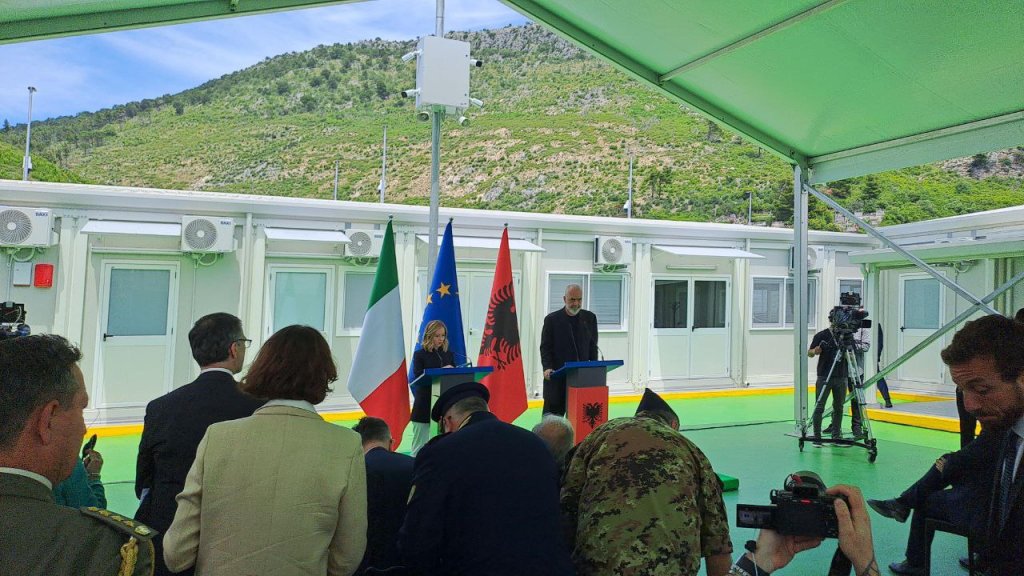The Italian government is planning to repurpose two migration centers in Albania into repatriation facilities after Italian courts repeatedly blocked the detention of rescued migrants in these locations. These centers, originally meant for processing asylum seekers found in international waters, will now serve as Centers for Permanence and Repatriation (CPRs) to hold migrants facing expulsion from Italy.
The centers in Shengjin and Gjader, which opened in October 2024, have remained largely unused. Three separate groups of migrants sent there in previous months were quickly returned to Italy after courts ruled against their detention in a non-EU country. To address this, the government is preparing a new decree, expected to be discussed on March 28, to formally change the centers’ purpose.
Despite an initial investment of nearly one billion euros over five years, the project has faced setbacks. Delays in construction and legal barriers prevented the intended use of the facilities. However, officials hope that an upcoming ruling from the European Court of Justice by mid-2025 will provide clarity on whether non-EU countries like Albania can be designated for fast-track asylum processing and repatriation.
The Gjader center already includes a CPR with 144 spaces, along with a facility for 880 asylum seekers and a small prison. Meanwhile, the Shengjin site only serves as a migrant identification hotspot without accommodation. Italian authorities argue that more repatriation centers are needed as many migrants with expulsion orders remain in Italy due to a lack of available detention spaces.
Political tensions continue over the issue. Opposition parties argue that the “Albania model” has failed and are urging Prime Minister Giorgia Meloni to abandon the plan. However, Meloni remains committed, stating she will ensure the centers become operational, even if she has to work “every night” to make it happen. Interior Minister Matteo Piantedosi has also emphasized the urgency of activating more CPRs.
The government’s proposed decree would allow certain expelled migrants to be transferred to Albania for a maximum detention period of 18 months. However, critics, including opposition leader Elly Schlein of the Democratic Party, claim the initiative is inhumane and a waste of public resources. Some lawmakers argue that modifying the centers’ purpose requires approval from both the Italian and Albanian parliaments, as the current treaty only permits the transfer of migrants rescued at sea.
As debates continue, the future of Italy’s Albania-based migration centers remains uncertain, with both political and legal challenges shaping the next steps.

